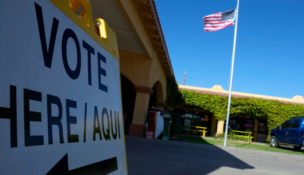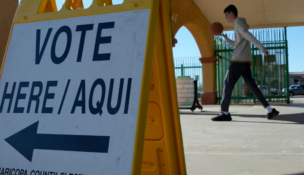Inflation and credit card swipe fees devastating
By Kevin Cassadore//August 22, 2024//[read_meter]
Inflation and credit card swipe fees devastating
By Kevin Cassadore//August 22, 2024//[read_meter]
As inflation continues to run rampant, no other racial or ethnic group has felt the financial sting more than Native Americans. When surveyed, 69% of them reported “serious financial struggle” as a result of inflation — higher than every other demographic. While American tribes have sought relief from portions of the Inflation Reduction Act, Congress must do more to bring financial assistance by reducing credit card swipe fees, which are having a multiplier effect on inflation.
Every time a customer makes a purchase using their credit card, the merchant is charged a swipe fee, taken as a percentage of the total transaction amount. As these fees rise, they severely impact products and services with slim profit margins, often forcing business owners to raise prices to cover costs. Unfortunately, this drives transactions higher, which enlarges the cut taken by credit card companies, ultimately feeding a brutal cycle of ever-rising fees.

In Arizona, credit card swipe fees cost merchants — including those on our reservation — nearly $1.9 billion every year. For many businesses, swipe fees are a greater expense than health are or utilities, ranking second only behind labor as a top operating expense. Native-owned businesses are also much more likely to report difficulty covering operating expenses or attaining credit. Which means this revenue sent to Wall Street makes it much harder for Native American merchants to reinvest in their business and keep prices down for consumers.
Loss of revenue and higher prices are also particularly damaging for Native American consumers, whose poverty rate – almost 27% – is nearly double the national average. Regardless of whether customers pay with a credit card or not, swipe fees drive prices up, forcing customers to pay. For the average American household, swipe fees result in more than $1,100 a year in increased prices, squeezing them further during an already challenging financial environment.
Visa and Mastercard benefit the most from today’s current swipe fee structure. Over the past decade, swipe fees have more than tripled, and Visa and Mastercard pulled in more than $100 billion last year for the first time ever. The two card issuers account for 80% of the market share, effectively creating a duopoly that sidelines their competitors by leveraging cartel pricing with major banks. In order to bring down swipe fees, more players have to enter the market — a structure that currently doesn’t exist.
Thankfully, a solution is already sitting in front of Congress. The Credit Card Competition Act (CCCA) would put merchants – not card issuers – in control to choose from at least two different routing networks when processing a transaction. This would create more competition and in turn, push Visa and Mastercard to reduce swipe fees and innovate in order to attract customers.
Additionally, the CCCA would exclude financial institutions with less than $100 billion in assets, ensuring local banks and credit unions that know and work to meet their communities’ financial needs are untouched.
I hope Sens. Mark Kelly and Kyrsten Sinema will join the bipartisan group of legislators who have introduced and cosponsored the CCCA and support its passage. If Congress doesn’t pass the CCCA, it will be choosing big banks over tribal businesses. Financial relief from credit card swipe fees is critical to uplift Native American businesses and communities, and Congress can deliver by passing the CCCA now.
Kevin Cassadore is a former chief executive officer of Peridot District Economic Enterprises and general manager of the San Carlos Apache Tribe.


















